Lughnasadh is a cross quarter day on the wheel of the year, celebrating this time of the first harvest of the season. Adopted by the Christian tradition as Lammas (or ‘loaf-mass’) it’s a moment to make space for gratitude and to celebrate all the gifts that the earth yields, as well as celebrate the abundance that enriches our lives.
This is glass half full territory and the perfect moment for me to pause after the past three months of launching my debut poetry collection Red Handed into the world. As I come to the end of a series of readings and get ready to take a break, it’s only now that I am looking back on all the events that I realise it even was a reading series (I didn’t quite plan it that way) and also how many of the seeds that were sown along the road to publication – often randomly, as if by the wind - have come to fruition.
I’d been thinking I’d better put something on Substack about having a book out and have put off writing this post, probably out of a queasy fear of blatant self-promotion. So why am I bothering now, you may wonder? If I was cooler, perhaps I wouldn’t. But I am putting these words down because I hope that by sharing this experience it might encourage someone else and because I wanted to share these things that have given me the courage to put one foot in front of the other to live my life as a poet, a choice that isn’t always easy but which rewards with a kind of deep joy that I feel in the very marrow of my bones and a gratitude for the richness poetry can bring to a life.
I’m won’t give you a blow-by-blow account of the last few months. But what I will inflict (forgive) are some key learnings I’ve gained along the way, things that all seem to boil down to a sacred three: collaboration, connection and community.
Collaboration
It’s no secret that I am a big fan of collaboration and kicking off this reading series was an event at the May Day weekend Neo Ancients Festival, featuring an array of excellent folk like Jeremy Deller, Bridget Christie, the BBC Witch podcast crew, Zakia Sewell, Weird Walk, Boss Morris, Jarvis Cocker, Caught by the River and more. Not bad for a sleepy market town on the western edge of England – and we were very grateful to master maestro John Best for sliding us into the lineup last minute.
Adam Horovitz and I have been circling one another for a while, working on residencies at the Corinium Museum and Roman Baths at Bath exploring Celtic and Roman ritual of south west England. The third part of Red Handed explores the Cotswold’s ancient culture of mother goddess worship as the poems move along the course of a river. Neoancients gave us the perfect opportunity to weave our words together with the haunting sounds of Chris Cundy on bass clarinet, who’d been working on a Sound Map of the Roman Baths with Adam (have a listen, it’s immense), and the wild noise of Sean Roe in the atmospheric surrounds of Rattle & Brash.
Sounds great right? Honestly, I had no idea how this collaboration was going to go. Adam’s work has a very different timbre and construction to mine, I had never even met Chris, let alone worked closely with him and I knew Sean would be brilliantly weird but potentially maverick to the point I couldn’t keep up on stage. There was no rehearsal, just a brief Zoom call beforehand - all of these guys are seasoned improvisers and well used to working together. We just arrived a bit early at the venue, walked through what we were doing which didn’t feel risky at all for the sold out opening event of a festival. Newbie as I am, I won’t lie that I found this a challenge but I trusted the process, put on my extra large pants and put my faith in those more experienced.
And how did it go? Pretty damn well I’d say. The event had a darker quality than music collabs I’d done before but it was dramatic and unusual and otherworldly – exactly as intended – and if audience feedback is anything to go by then I’d say it worked. One audience member came up to me afterwards and said it had been like tripping. I mean. Couldn’t have hoped for better feedback to be fair.
The actual in person launch of Red Handed took place at the Woolpack in Slad, home of Laurie Lee, the writer who first showed me the way to write about the place where I came from and namesake of the first proper prize to give me the confidence boost I needed to finish a book. I didn’t want to just stand before an audience and read – a mode that has its place, but wasn’t for me for this book. I wanted it to be a celebration and a true collaboration – an opportunity to bring in some wonderful poet friends who’ve helped me along the road and to reprise a fragment of our Glos Mythos show with Mara Simpson and Emma Kernahan.
With readings from Philip Rush, a terrific poet, friend and editor of Yew Tree Press which published my first pamphlet Lake 32; uber babe Martha Sprackland who was my tutor on an Arvon course ‘Towards a Collection’ (I have stalked her ever since); Adam Horovitz himself (see above) and Edward Lear-ean nonsense songs from Paul Southcott accompanied by the slate xylophone, plus Ragged and Old Morris doing a hop in the road. Perhaps not quite what you might think of as a Stanza approved poetry event. But together we made a proper poetry party and the stars aligned on the summer solstice in all its bonkers Gloucestershire glory. I couldn't have hoped for a more magical evening to share with so many loved ones and send the book well on its way into the world – and this was wholly down to the collaborative nature of the event. So much love and magic in the air.
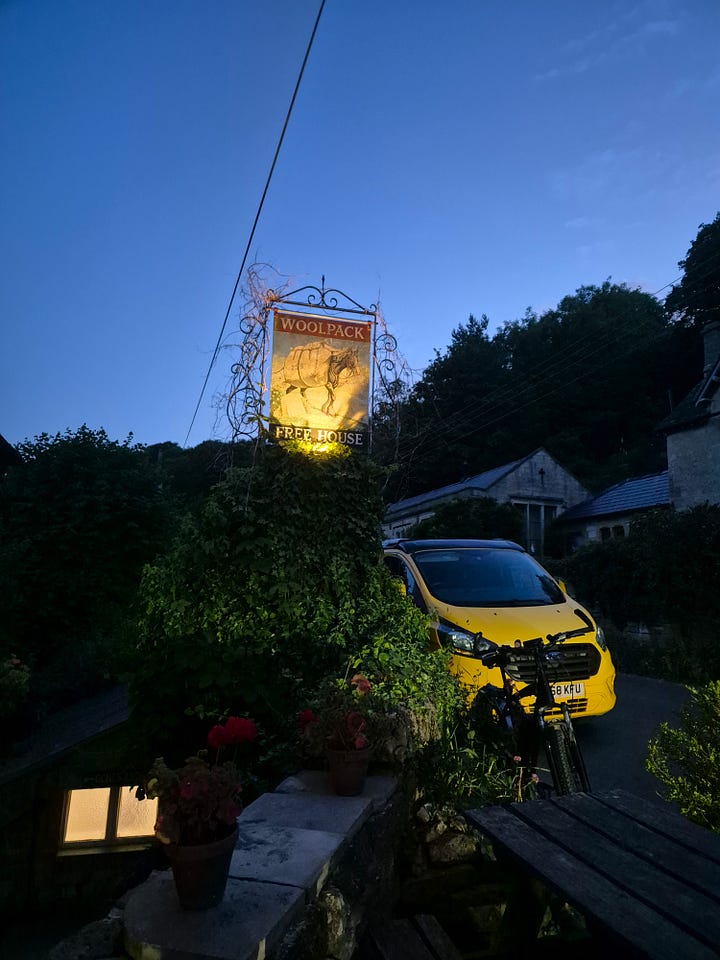
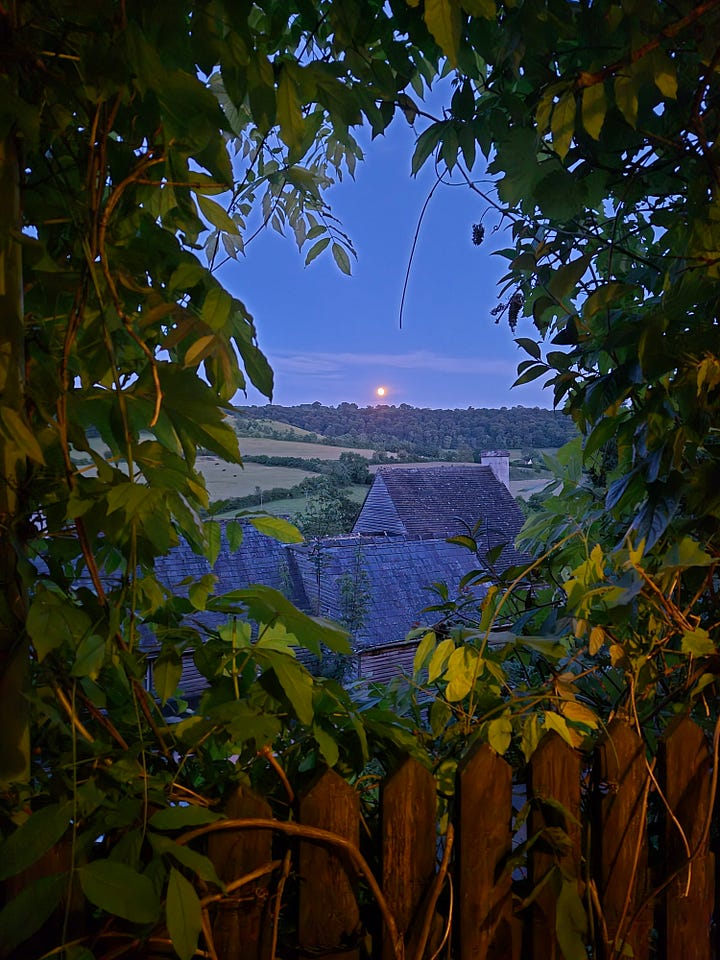
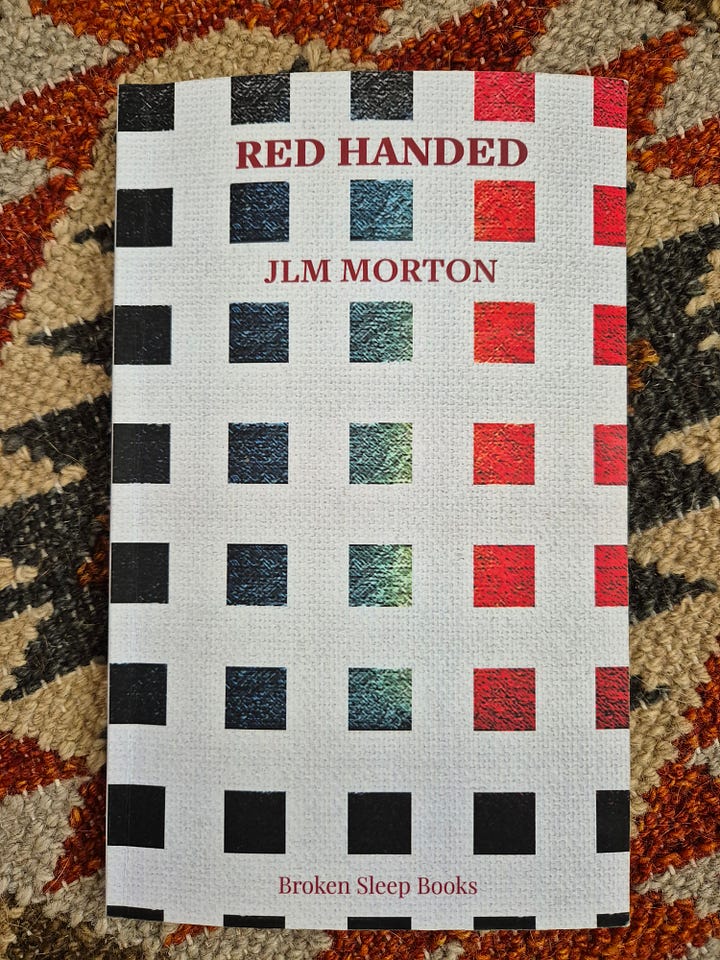
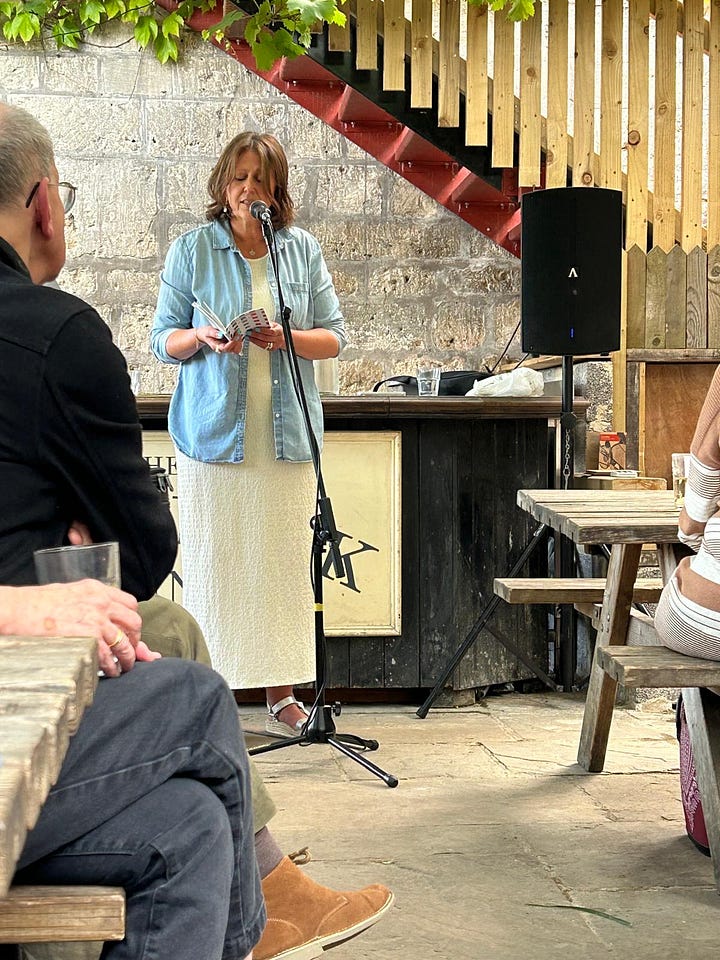
Connection
Writing is often lonely. A solitary activity, it requires significant amounts of time spent alone, focusing on the creative process. This isolation is necessary for concentration and productivity, the intense focus needed to actually finish the work, but can lead to feelings of isolation. One way of counteracting this is joining writing groups, going on courses and workshops.
Harry Man is one of the most generous, genuinely innovative, and inspirational poets I’ve met along the way – we first came across one another at the aforementioned Arvon course led by Martha Sprackland and Mimi Khalvati. As one of the most published among us at the time, he was relentlessly kind and open-hearted, offering advice and support, and I remember especially the practical tips he offered on using tech to make poetry films and the software I was struggling with at the time. Needless to say, when I asked him about potential venues for reading in his native North East England, and he suggested - typically generously – the idea of ‘reciprocal readings,’ I grabbed the chance before he changed his mind. The plan was to join him for the launch of his wonderful new collection Popular Song (Nine Arches) and Bob Beagrie, launching Romanceros, his collection on the Spanish Civil War.
Fast forward a few months on a sunny Friday in early May and I was sailing up the M1 when I hit a stack of traffic. Why had I believed Google Maps when it told me the journey would take 4.5 hours?
That night, I arrived so late for the reading that my phone had run out of battery, the sat nav wasn’t working, nobody I stopped to ask knew where the venue was, that I dumped my car in an entirely empty car park in the wastelands of the Teeside University campus and flagged down a lone taxi crawling by. I turned up to the venue to find Harry outside trying to call me and I had missed not only my reading slot but, even worse, I’d missed his reading and surely squandered any goodwill he may have harboured toward me.
I had time to grab a drink and take a seat. There was a flamenco guitarist on stage who seemed to know his appreciative audience well. On the way into Middlesborough, the election of a new Tory mayor was announced. I had the creeping feeling that I was not among my people. And yet. Again with typical generosity, I was invited to read and Harry ushered me on stage.
What was it Robert Frost said? ‘The only way is through.’
It was up there with the more excruciating readings I’d done. I felt like I was misjudging my choice of poems for the audience who were staring at me blankly, but I didn’t have the wherewithal at the time to change tack. I came off stage feeling crestfallen – all that effort, the childcare, the organisation it takes to step out of family responsibilities! I realised I’d got complacent, used to reading to folk who came predisposed to like my poems, and had failed to adapt to unchartered territory. I headed straight for the bar.
And what happened at the bar? People came up to me and told me how much they loved my work, showed me their tattoos that connected in different ways to the work I was reading, bought me drinks, completely bowled me over with their kindness.
So why am I telling you this? Because you should be yourself, no matter the circumstances. Trust the work you’ve put into yourself as a writer and a performer. You never know what the audience is really thinking.
But don’t be late though. That’s just rude.
Community
Which brings me to community and how joyous it is to be invited into the fold of a ready-made poetry community. It was a great pleasure to join the Tees Women Poets, Crafty Crows (Gloucestershire Poetry Society), the Broken Sleep family, the London Arts Based Research Centre which not only hosted a reading from Red Handed with the extraordinary Ella Duffy, but also a keynote by yours truly on ecopoetics in the gorgeous Pembroke Lodge at Richmond Park. My final stop on this tour of joy was at Bristol Docks’ Satellite of Love, aboard the John Sebastian Lightship at Bathurst Basin. To support my reading, I invited my favourite Bristolians Caleb Parkin and Sophie Dumont to join me, poets I’ve long admired.
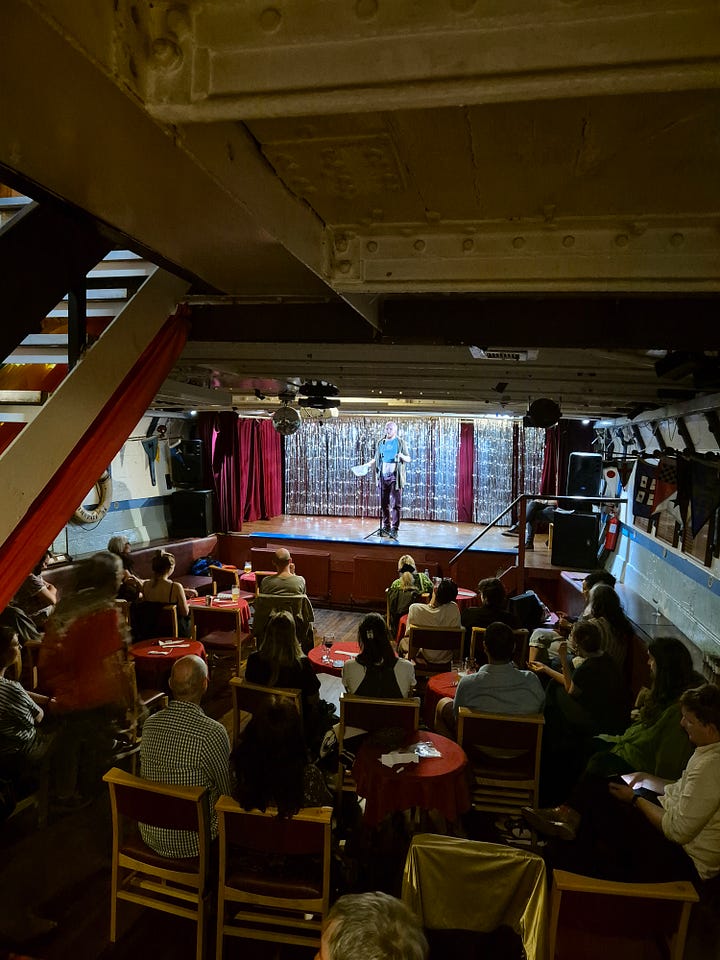
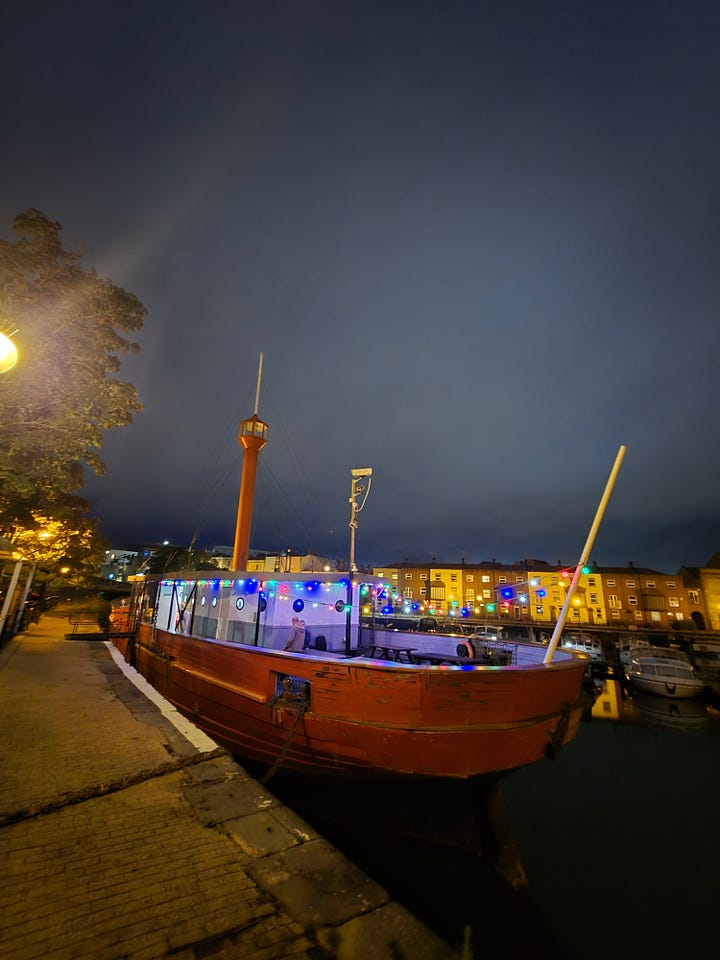
Satellite of Love is one of the most inclusive and diverse poetry evenings it’s ever been my pleasure to be part of. Home of a warm, full-hearted, funny (important) group of poets who produce a community poem each month, offer an open mic which you can sign up to beforehand, as well as a random lottery style selection on the night, all voices and styles are welcome there. On an actual boat. And all to the backdrop of a silver tinsel curtain.
Which is not to say it’s flippant or crappy. The standard is high, the quality of performance impressive, the comic timing second to none. Go, go, go if you can and behold the wonder of a community of practice that is working at its edge to find out what’s possible before taking it to a wider audience – a kind of scratch performance for poems.
And as I walked away from the event that night heading for the train home, I wondered to myself what more anyone would want from poetry. Really. The camaraderie of other poets, the rigor and seriousness of a high bar, the opportunity to share and enjoy and feel less isolated in a poetry world that can sometimes seem cruel.
I often ask myself what success looks like for poets. In truth, it probably changes week to week. For some of us it might be about winning prestigious prizes, getting a top job in an arts organisation or institution, being in the best journals, gaining the respect of our peers or being widely read by an audience beyond the poetry bubble. Success can be all of those things at once and none of them at all ever.
And I know I’m not the first person to say this, but leaning into the process, the becoming of being a poet – with all its humiliations, failures, accomplishments and celebrations - rather than holding in mind some kind of ferociously unforgiving checklist of potentially unattainable and fleeting achievements which are totally outside of our control, is a surer route to (if not gleeful happiness) contentment.
At base, the experience of the last few months has shown me that weaving poetry into the fabric of everyday life and making it something that’s not a thing you do outside of your real life, but rather something that involves connection, collaboration and community in a way that makes you you is key. These intricately related and yet distinct experiences of working in poetry are where the joy lies. And, while I am still on the merry-go-round of putting Red Handed out to bookshops and reviewers and looking for chances to connect in new places, I have also come to appreciate how your audience - and by that I mean the people who truly engage and get your work – are quite often staring you in the face when you’re looking the other way, worrying about something or another. Which is to say, find your people, know your people, but be open to the difficult, the challenging, the unexpected. That way lies growth.
As a little thank you for following along, I’m sharing a playlist which I’ve been compiling for Red Handed. Have a listen here. Hope you enjoy it!
Red Handed is available to buy on Amazon, Waterstones, Foyles, PBS and elsewhere – but best of all, buy it direct from Broken Sleep Books and support a vital independent poetry press.
The title of this blog was inspired by Brian Friel’s Dancing at Lughnasa, a memory play set in Donegal, Ireland (1990).
I hope you’ve enjoyed this blog, written in some haste so apologies for the (inevitable) errors and typos! Do leave a comment below - let’s connect…



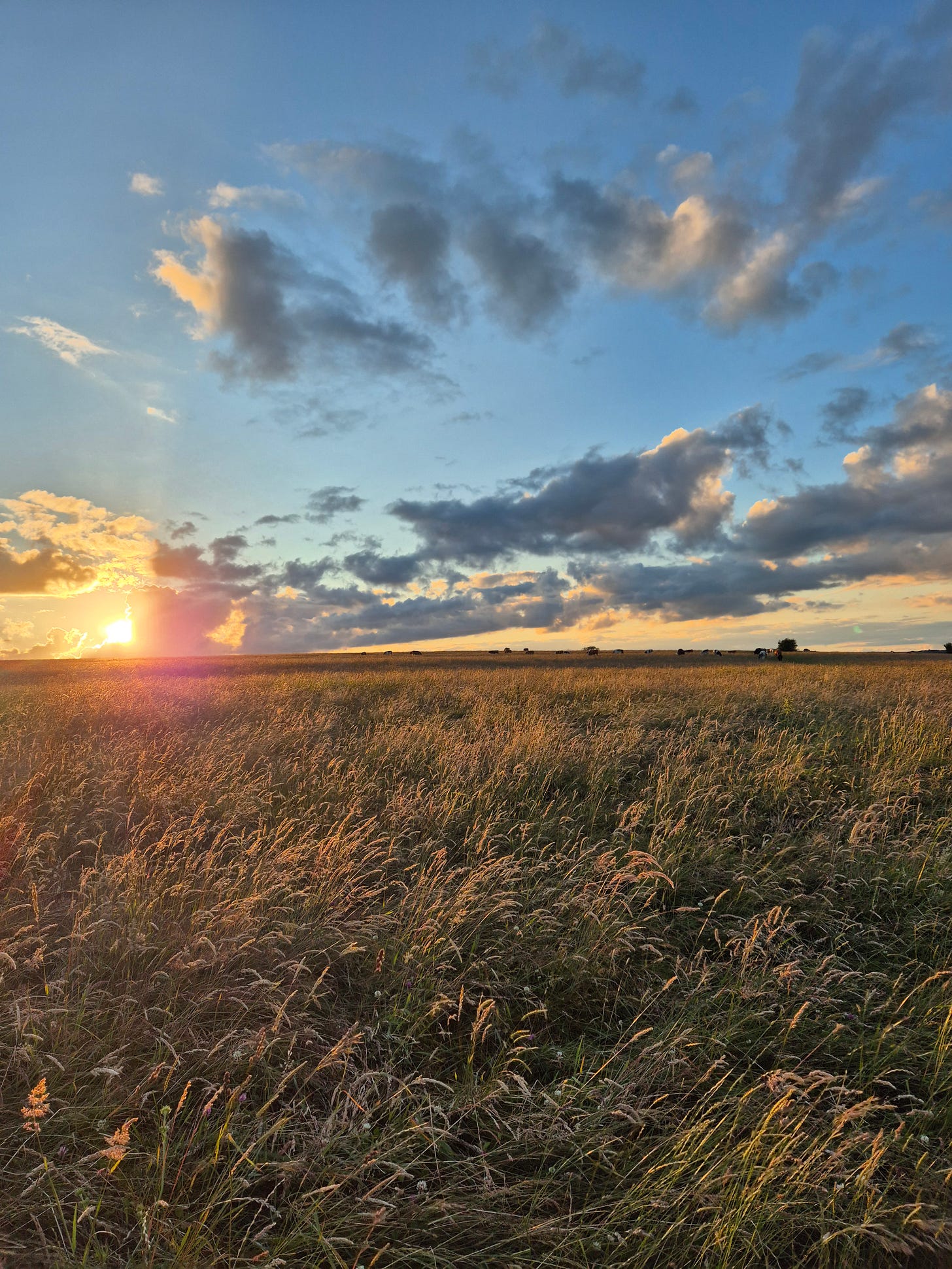



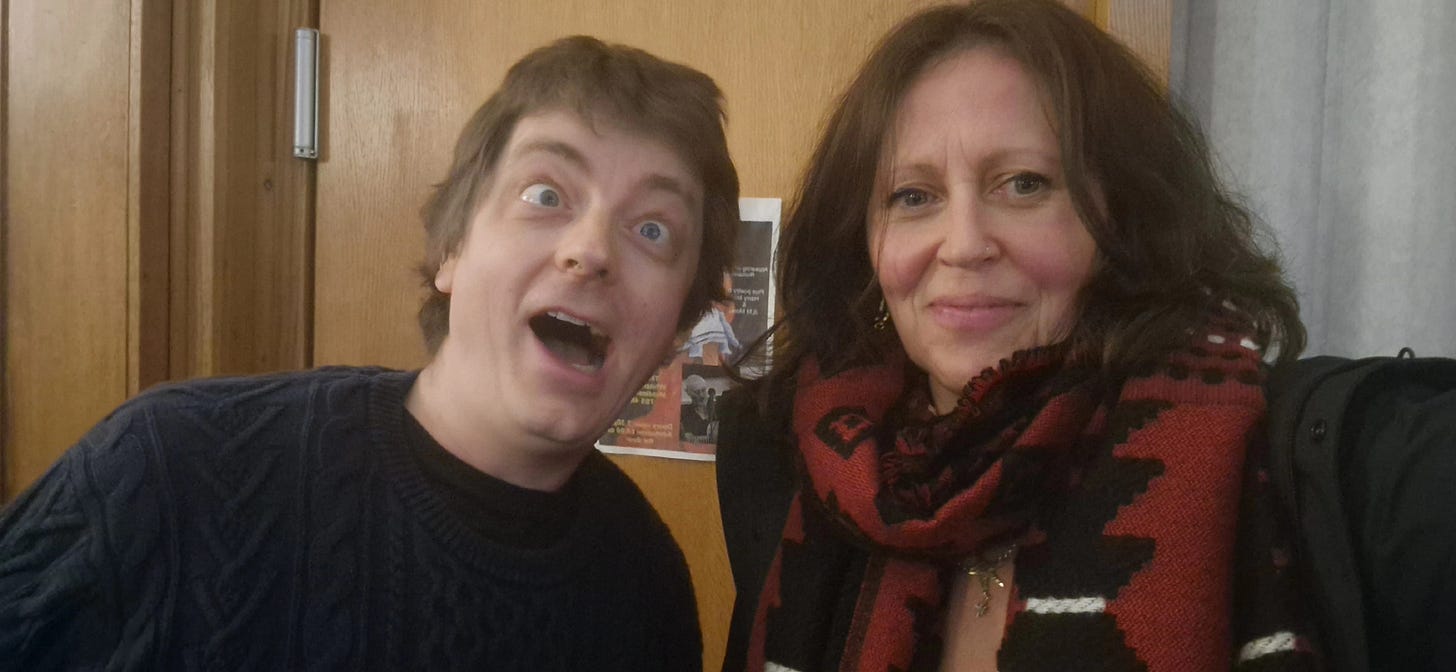
This is so lovely, Juliette, thanks for sharing! Happy Lughnasadh to you :-)
Thanks for putting this up.. we're all in very different places as stuff like this is hugely important (I think) for people who feel mostly the difficulty of finding stability and /or direction in the bewildering and scrambled world they suddenly fall into when they begin to have thoughts of being "creative"...